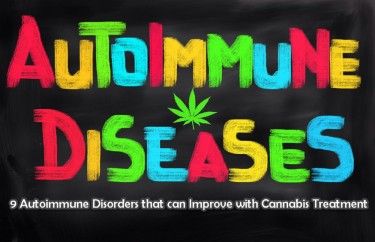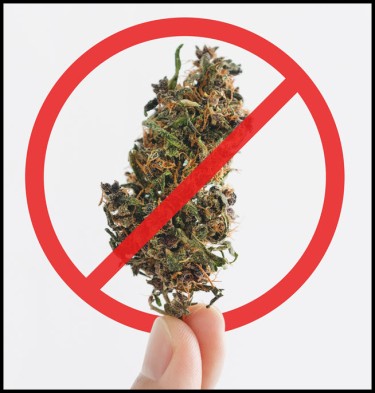Cannabis News
Skip Medical and Just Go Straight to Recreational Cannabis?
Published
3 weeks agoon
By
admin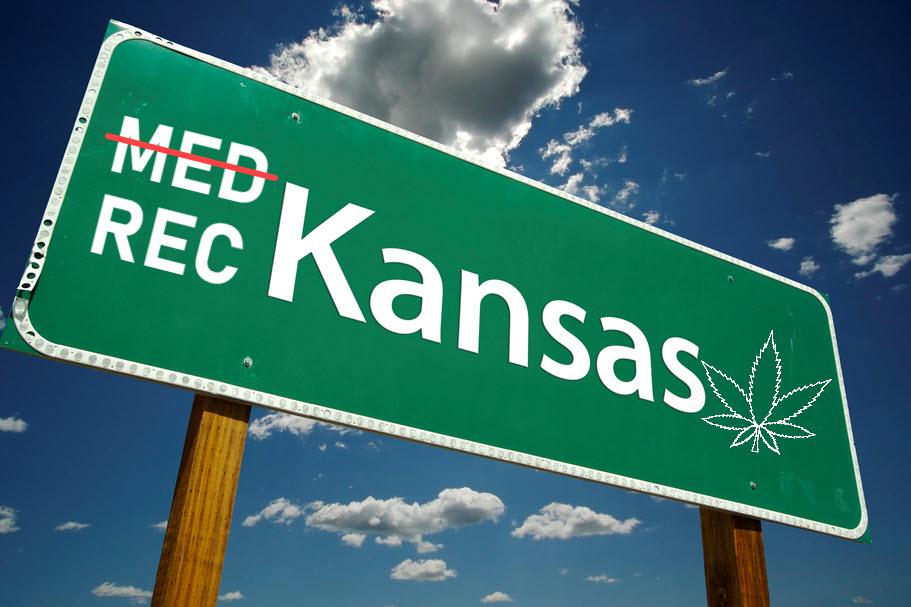
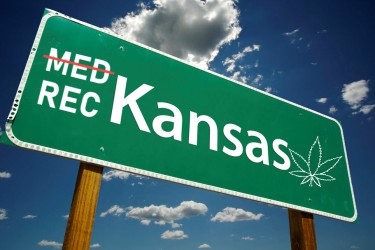
The conversation around cannabis legalization is heating up in Kansas. Recently, Debbi Beavers, a top state official, suggested that it might be “easier” for lawmakers to legalize recreational marijuana rather than starting with a medical cannabis program. This statement has ignited discussions about the implications of such a shift in policy. In this article, we’ll explore the potential benefits and challenges of legalizing recreational marijuana in Kansas and the broader context of cannabis legislation in the state.
Current Landscape of Cannabis Legislation in Kansas
Kansas has long maintained strict laws against marijuana use. While many states have embraced legalization either for medical or recreational purposes Kansas remains one of the few states without any form of legal cannabis. This resistance is rooted in cultural attitudes, political opposition, and concerns over public health and safety.
Despite its conservative stance, there’s a growing movement advocating for cannabis legalization in Kansas. Polls show that public support for legalizing marijuana is on the rise, with many residents recognizing the potential economic benefits and social justice implications. However, legislative efforts have often stalled, particularly concerning medical marijuana.
Why Legalize Recreational Marijuana?
-
Simplifying Regulations
One of Beavers’ key points is that legalizing recreational marijuana could create a more straightforward regulatory framework than starting with a medical program. Establishing a medical system involves complex regulations regarding patient eligibility and product safety. In contrast, recreational legalization could streamline these processes by creating universal regulations for all adult users.
-
Economic Benefits
Legalizing recreational marijuana could significantly boost Kansas’s economy. States that have legalized cannabis have reported substantial increases in tax revenue. For instance, Colorado generated over $1 billion in tax revenue from cannabis sales since legalization in 2014. Kansas could benefit similarly, directing funds toward education, infrastructure, and public health initiatives.
-
Job Creation
The cannabis industry is also a burgeoning source of employment opportunities. Legalizing recreational marijuana would create jobs in agriculture, retail, and distribution, stimulating local economies and providing much-needed employment in areas with high unemployment rates.
-
Social Justice Considerations
Legalization also raises important social justice issues. The War on Drugs has disproportionately affected marginalized communities, leading to high incarceration rates for non-violent drug offenses. Legalizing recreational marijuana could help address these disparities by reducing arrests and convictions related to cannabis use.
-
Expungement Initiatives
Many states that have legalized recreational marijuana have implemented Expungement initiatives to clear the records of individuals previously convicted of cannabis-related offenses. Such measures could provide relief to those negatively impacted by past drug policies and promote equity within communities historically affected by harsh drug laws.
Challenges to Legalization
-
Political Resistance
Despite the potential benefits of legalizing recreational marijuana, significant political resistance remains. Many lawmakers hold conservative views on drug use and may be hesitant to embrace any form of legalization. Concerns about how legalization might affect public health and safety also persist.
-
Public Health Concerns
Opponents often cite potential public health risks associated with increased access to marijuana. These concerns include impaired driving, youth access to cannabis products, and potential long-term health effects on users. Addressing these issues through public education campaigns and responsible regulatory measures will be crucial if Kansas moves forward with legalization.
-
Regulatory Challenges
While Beavers argues that recreational legalization may simplify regulations, establishing an effective system will still pose challenges. Lawmakers must consider licensing requirements for growers and retailers, product safety standards, taxation rates, and marketing restrictions.
-
Balancing Interests
Finding a balance between promoting a thriving cannabis market and ensuring public safety will require careful planning and collaboration among stakeholders. Engaging law enforcement agencies, public health officials, and community organizations will be essential in crafting effective regulations that address diverse interests.
The Influence of Neighboring States
-
Regional Pressure for Change
Kansas is bordered by several states that have legalized either medical or recreational marijuana. As these neighboring states expand their cannabis markets—such as Colorado’s robust recreational system. Kansas lawmakers face increasing pressure to take action on their own policies.
-
Economic Competition
The economic benefits enjoyed by neighboring states may serve as a catalyst for change in Kansas. If residents travel across state lines to purchase legal cannabis products from states like Colorado or Missouri (which recently legalized medical marijuana), Kansas risks losing out on potential tax revenue and economic growth opportunities.
Shifting Public Opinion
Growing Support for Legalization
Public opinion regarding cannabis legalization has undergone a remarkable and dramatic transformation over the past few years. Recent polling data reveals that nearly 60% of Kansans now express support for the legalization of recreational marijuana, marking a significant increase compared to previous years. This surge in support not only highlights a shift in societal attitudes toward drug use but also reflects a broader recognition of the potential benefits associated with legalization, including economic growth, job creation, and social justice reforms. As more individuals become aware of these advantages, it is clear that the conversation around cannabis is evolving, paving the way for a more progressive approach to drug policy in the state.
Advocacy Efforts
Advocacy groups have played a crucial and transformative role in shifting public opinion regarding cannabis legalization by actively raising awareness about the numerous benefits associated with legalizing marijuana and addressing the various misconceptions that persist around cannabis use. These organizations have undertaken extensive efforts to organize campaigns specifically designed to educate voters about not only the economic advantages that legalization can bring—such as increased tax revenue and job creation—but also the significant social justice implications connected to cannabis reform, including the need to rectify past injustices related to drug enforcement policies. Through their initiatives, these groups aim to foster a more informed public discourse on the topic, ultimately paving the way for meaningful legislative change.
Conclusion
The proposal to legalize recreational marijuana in Kansas presents a significant opportunity for the state to simplify its regulatory framework, boost its economy, and address social justice issues, all while responding to growing public support. However, navigating the challenges of political resistance and public health concerns will be essential. By fostering open dialogue among lawmakers, advocacy groups, and community stakeholders, Kansas can craft a responsible cannabis policy that not only aligns with changing public sentiment but also sets a precedent for effective governance in an evolving landscape of drug policy reform.
KANSAS GOES GREEN, BUT NOT SO FAST, READ ON…
THE 2 REPUBLICANS BLOCKING MMJ IN KANSAS FOR 300,000 PEOPLE!
You may like
-


Autoimmune Conditions Are Rising Fast in American Medicine, Can Cannabis Help?
-


Hemp and the New Senate Farm Bill
-


The Red Wall Blocking Marijuana Legalization in America, Real or Imagined?
-


Minnesota Office of Cannabis Management Issues Rejections to Majority of Social Equity Applicants
-


Find LivWell in Colorado
-
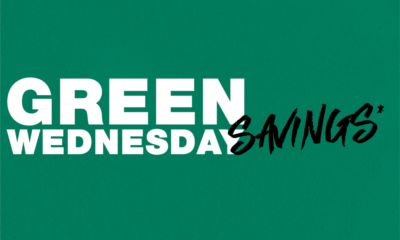

Find Verilife in Massachusetts
Cannabis News
Autoimmune Conditions Are Rising Fast in American Medicine, Can Cannabis Help?
Published
1 hour agoon
November 21, 2024By
admin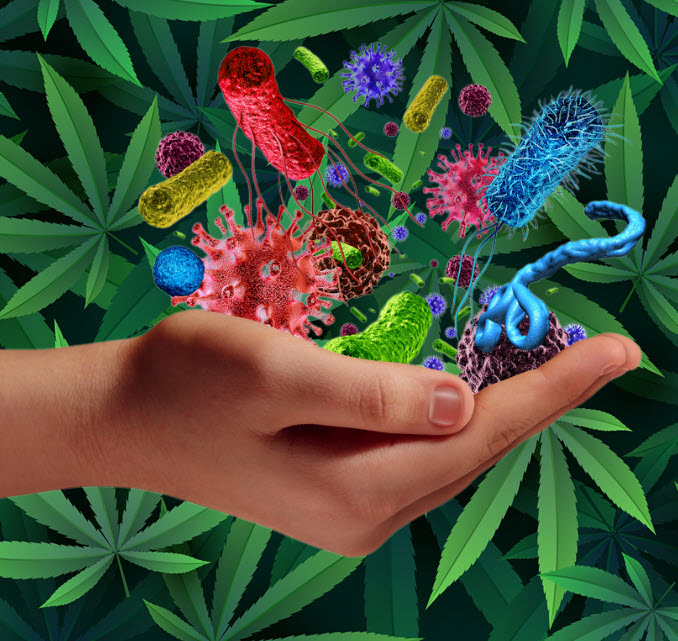
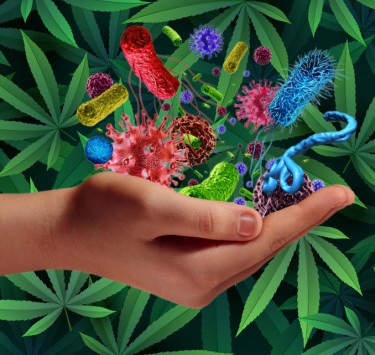
Why Are Autoimmune Conditions On The Rise? And How Cannabis Can Help
Autoimmune diseases refer to a group of medical conditions that occur as a result of the immune system attacking your own tissues.
In a normal human body, the immune system is responsible for protecting the body by producing antibodies that prevent toxins, cancer cells, and viruses from harming the body. However, when one is struck by an autoimmune disorder, the immune system is no longer able to distinguish the difference between dangerous cells and healthy cells. As a result, the healthy cells are attacked, too.
Today, we know of around 100 different kinds of autoimmune conditions. Some of the most common examples of autoimmune conditions include rheumatoid arthritis (RA), lupus, inflammatory bowel disease, celiac disease, Type 1 diabetes, multiple sclerosis (MS), and the Guillain-Barre syndrome (GBS) to name a few. Others include Graves’ disease, Hashimoto’s thyroiditis, psoriasis, and vasculitis.
According to the National Health Council, around 50 million Americans are affected by autoimmune diseases today. This is a conservative estimate, considering that several autoimmune conditions are tricky to treat and so many people go undiagnosed for long periods of time. It’s worrisome to note that there are more people developing autoimmune diseases these days, many of which have reached levels comparable to epidemics.
But cannabis can help!
How Cannabis Can Help Curb And Manage Autoimmune Diseases
Not one single cause is responsible for the alarming growth of autoimmune diseases, though there are several factors at play. While there isn’t just one cause we can point at, it’s certain the reasons lie in our environment. After all, human genetics haven’t changed significantly yet the chemicals, toxins, and pollutants in our food and everyday items have risen dramatically.
In addition, people are getting less sleep than ever; stress rates are through the roof, and people are constantly worried. There is a clear link between psychological stress and physical health as well as immunity, which is why it isn’t unusual – it’s even common – to see many autoimmune disease cases flare up after people experience severe stress caused by grief, an accident, job loss, or the death of a loved one. These highly stressful and traumatic conditions wreak havoc on the body’s immune response, causing inflammation all over the body.
Conventional treatments prescribed to treat autoimmune conditions are focused on taming inflammation; these usually include steroids but also some non-steroidal drugs. These drugs often come with unwanted side effects, but research has shown that cannabis can work with the endocannabinoid system through THC and CBD, as well as other cannabinoids, to simulate similar results. In one study for example, we can see the clear association of the endocannabinoid system for neurodegenerative and inflammatory processes seen in Multiple Sclerosis and Amyotrophic Lateral Sclerosis.
There has also been an increasing number of studies proving the efficacy of cannabis for treating several autoimmune conditions.
Cannabis For Multiple Sclerosis
Multiple sclerosis is one of the autoimmune conditions where a growing number of studies have come out supporting the therapeutic benefits of cannabis for. In a 2024 study, patients with multiple sclerosis reported several improvements in quality of life after using cannabis-based medical products (CBMPs). For the study, British investigators analyzed the impact of cannabis based medicinal products made from either oil or extracts in 141 patients who were enrolled in the UK Medical Cannabis Registry.
The researchers then analyzed the changes in patient outcomes after a month, then three and 6 months after. According to the patients themselves, they were able to sustain improvements in their mental and physical health after marijuana therapy.
“This case series demonstrates a potential association between the initiation of CBMPs and improved patient reported outcomes in sleep, anxiety, and general HRQoL [health-related quality of life] measures, over six months,” said the study authors. “Additional measures for HRQoL, including various physical and mental health subdomains, also exhibit improvements up to six months when compared to baseline,” the authors concluded.
In another study from 2023, patients with multiple sclerosis reported significant improvements in symptoms after cannabis use. For the study, researchers from the Dent Neurologic Institute in Buffalo, New York, analyzed the medical records of 141 patients with multiple sclerosis, who were also legally authorized to consume medical marijuana products. They then analyzed data from the patients after one up to 4 follow-up sessions after the initial session of cannabis therapy. Sixty-five percent of patients consumed 1:1 THC:CBD tinctures.
According to the authors: “The results of this study indicate that use of MC [medical cannabis] to alleviate symptoms of MS is largely efficacious, with improvement in pain (72 percent of patients), muscle spasticity (48 percent of patients), and sleep disturbance (40 percent of patients) frequently reported.”
“More than half of opioid users at baseline were able to either discontinue or decrease their opioid use after starting MC. The mean daily MME [morphine milligram equivalents] was significantly reduced from the initial visit (51 mg) to the last follow-up visit (40 mg). This is consistent with previous literature showing that MC legalization is associated with decreased opioid use and that MC use is associated with decreased opioid use in patients with chronic pain. These findings indicate that MC may represent an alternative analgesic to opioids for some patients,” they wrote.
Anecdotal Evidence
While more studies are needed to determine cannabis’ effect on other autoimmune conditions such as rheumatoid arthritis, we can rely on anecdotal evidence. In 2020, data from the medical journal, Rheumatology, revealed that patients who have this condition, along with those who have lupus and fibromyalgia, consume cannabis.
In fact, it was reported that marijuana was extremely common especially for patients with fibromyalgia. “In this meta-analysis, we found that one in six patients suffering from rheumatologic disease actively consumes cannabis, reducing pain reduction… A favorable effect of cannabis on pain in our meta-analysis reinforces the idea that cannabis could be used for analgesic purposes,” the authors concluded.
Conclusion
Cannabis is a safe and natural way to help prevent and treat the symptoms of autoimmune disease. It targets inflammation at its root, and is a proven natural way to help cope with stress, pain, insomnia, and inflammation all while protecting the brain. However, it’s important to ensure you medicate with clean, organic sources of marijuana.
AUTOIMMUNE AND CANNABIS, READ ON…

The U.S. Senate’s version of the Farm Bill finally landed this week. They’re calling it the Rural Prosperity and Food Security Act of 2024 (the “Senate bill”). The Senate bill follows on the House’s proposal, called the Farm, Food and National Security Act of 2024 (the “House bill”), offered in May. Neither the Senate bill nor the House bill would preempt state or Indian law regarding hemp or the regulation of hemp products. This means states and tribes will retain a lot of latitude in regulating hemp and hemp-derived products– which gets people fired up.
Aside from giving states some runway, the Senate bill and the House bill differ in key respects regarding hemp. Therefore, these august bodies must confer and reconcile their sundry proposals. That could happen in 2024, but seems more likely in 2025 when the new Congress convenes. As of this week, though, we finally have a framework.
The Senate Bill re-defines “hemp” and defines “industrial hemp”
Section 10016 of the Senate bill (“Hemp Production”) amends the definition of “hemp.” Hemp was defined in the 2018 Farm Bill and removed from the federal Controlled Substances Act (CSA), taking us on a truly wild ride. See: What Happened to Hemp? (“What Happened”). The Senate bill also gives us a definition for “industrial hemp.” Here are those definitions, with points of emphasis in bold:
(1) Hemp. The term “hemp” means (A) the plant Cannabis sativa L. and any part of that plant, including the seeds thereof and all derivatives, extracts, cannabinoids, isomers, acids, salts, and salts of isomers, whether growing or not, with a delta-9 total tetrahydrocannabinol concentration (including tetrahydrocannabinolic acid) of not more than 0.3 percent on a dry weight basis; and (B) industrial hemp.
(3) Industrial Hemp. The term “industrial hemp” means the plant Cannabis sativa L. if the harvested material (A) is only (i) the stalks of that plant, fiber produced from those stalks, or any other manufactured product, derivative, mixture, or preparation of those stalks (except cannabinoid resin extracted from those stalks); (ii) whole grain, oil, cake, nut, hull, or any other compound, manufactured product, derivative, mixture, or preparation of the seeds of that plant (except cannabinoid resin extracted from the seeds of that plant); or (iii) viable seeds of that plant produced solely for production or manufacture of any material described in clause (i) or (ii); and (B) will not be used in the manufacturing or synthesis of natural or synthetic cannabinoid products.
The new regime
Again, the definitional stuff in bold is what I want to emphasize.
First, the Senate bill keeps the THC threshold at 0.3 percent, which is an arbitrary number we’ve been advocating against for years. The Senate bill mirrors the House bill in this respect, though, so we are stuck with this, unless Ron Paul gets his way.
Second, the Senate bill keeps the 2018 Farm Bill’s total THC standard, including THCA. The House bill does this too. This was fairly predictable: in What Happened, I wrote that we could “expect the total THC standard to remain, which means that actual Delta-9 THC won’t be the only metric for calculating THC content.”
We’ve also explained on this blog that the 2018 Farm Bill and USDA rules mandate total THC testing on pre-harvest hemp batches, but do not mandate such testing on post-harvest hemp or hemp products. The Senate bill doesn’t change this paradigm, which means the “loophole” for gas station weed remains open. This proposal is a big win for opponents of the House bill’s “Miller Amendment,” which would narrow the definition of “hemp” to exclude intoxicating hemp-derived substances.
Third, the Senate bill introduces a new definition and framework for industrial hemp. The House bill does this too, albeit slightly differently. The idea here is to invite farmers to grow hemp for fiber and grain purposes, while freeing them from regulatory burdens with the Department of Agriculture and criminal exposure with the Department of Justice. More specifically, for “industrial hemp” growers, the Senate bill:
- removes background check requirements;
- instates “relaxed regulatory requirements” for sampling and inspection methodologies (which will need to be adopted by rule); and
- develops a certified seed program.
The Senate bill also makes any hemp producer ineligible to grow hemp for five years if that producer, “with a culpable mental state greater than negligence, produces a crop of hemp that is inconsistent with that license.”(Hint: use the seed program.) The proof standard here seems like it could be an issue, and even if anyone has been adjudicated as growing marijuana under the guise of hemp, Farm Bill ineligibility seems like a far-off concern.
Bottom line
The big takeaway for me is that the Senate bill leaves the door open for intoxicating hemp products, whereas the Miller Amendment to the House bill does not. Something’s gotta give. And it needs to happen soon, because we’re already long overdue. As I explained in a webinar last week, the Farm Bill deals with the nation’s entire food supply, not just hemp. Therefore, this is not like with the SAFE Banking Act, where we have a proposed law specific to cannabis that may or may not ever pass. The Farm Bill must pass, and soon.
Stay tuned and we’ll keep you updated on any major happenings. For more on this topic, check out our massive hemp and CBD archive, or these specific, recent posts:
Cannabis News
The Red Wall Blocking Marijuana Legalization in America, Real or Imagined?
Published
3 hours agoon
November 21, 2024By
admin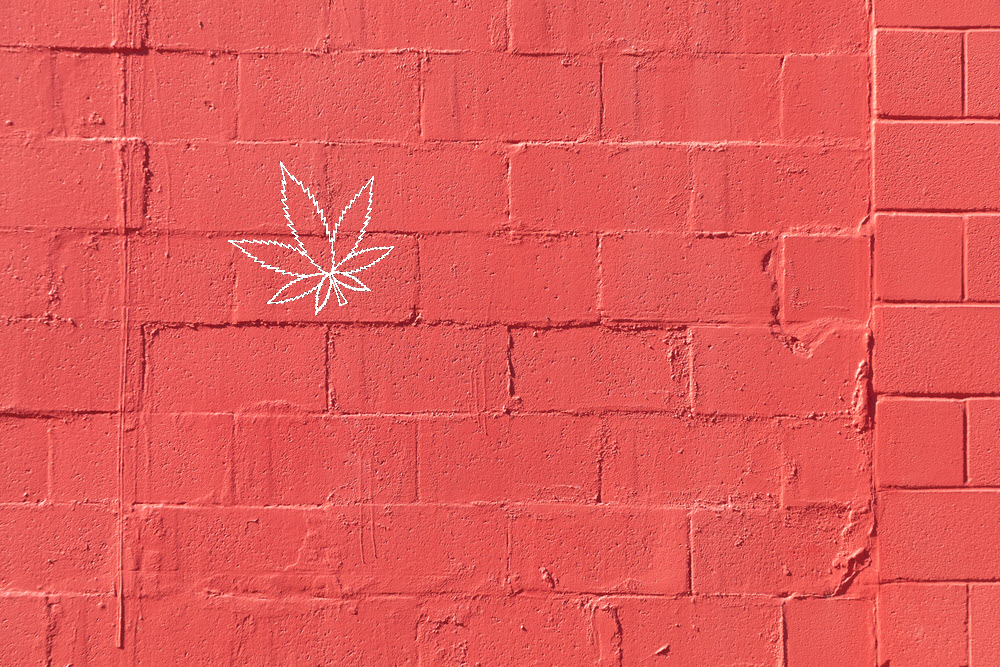

As the movement for marijuana legalization gains momentum across the United States, a significant barrier remains in place in many conservative states, forming what advocates and analysts have termed a “red wall.” This phenomenon highlights the stark divide between states that have embraced cannabis reform and those that continue to criminalize its use, particularly in areas where Republican leadership is firmly entrenched. This article will explore the current landscape of marijuana legalization, the factors contributing to this resistance, and the implications for consumers and advocates alike.
The Current State of Marijuana Legalization
Over the past decade, public opinion regarding marijuana has shifted dramatically. According to recent polls, approximately 68% of Americans support legalizing cannabis for recreational use. This shift has translated into legislative action, with 38 states and the District of Columbia allowing medical marijuana and 24 states legalizing it for recreational use. States like California, Colorado, and Illinois have set precedents with robust frameworks for both medical and recreational cannabis markets.
Despite this progress, a significant number of states remain resistant to change. As of 2024, there are still 20 states where marijuana is illegal for recreational use, many of which are governed by Republican majorities. This resistance is often attributed to a combination of political ideology, cultural attitudes, and concerns about public safety.
The Red Wall: A Political Barrier
The term “red wall” refers to the political landscape in conservative states where Republicans maintain control over both legislative chambers and the governor’s office—known as a trifecta. In these states, efforts to legalize cannabis face substantial obstacles due to party alignment and prevailing conservative values.
States such as Wyoming, Idaho, and Nebraska exemplify this red wall. Here, despite growing public support for legalization, lawmakers remain hesitant to advance legislation or allow ballot initiatives that would enable voters to decide on cannabis reform. The result is a patchwork of laws that leaves millions of Americans in conservative regions without access to legal cannabis.
Factors Contributing to Resistance
One of the primary reasons for the red wall against marijuana legalization is the deeply ingrained political ideology within conservative circles. Many Republican leaders view cannabis as a moral issue rather than a public health or economic one. This perspective is often rooted in traditional values that prioritize law and order over personal freedom.
Additionally, some conservative lawmakers express concerns about the potential societal impacts of legalization, including increased drug use among youth and impaired driving incidents. These fears can overshadow empirical evidence from states that have legalized cannabis, which often show no significant increase in youth usage or traffic accidents.
Cultural attitudes toward marijuana also play a significant role in shaping policy decisions in conservative states. In many regions, cannabis remains stigmatized as a dangerous drug associated with criminal behavior. This stigma can lead to fear-based policymaking that prioritizes prohibition over regulation.
Moreover, conservative communities may have strong ties to traditional industries such as agriculture and law enforcement that view marijuana legalization as a threat to their interests. These cultural dynamics create an environment where lawmakers are reluctant to support reform efforts that could alienate their constituents or undermine their political base.
Legislative Challenges
In addition to ideological resistance, practical legislative challenges further complicate efforts to advance marijuana legalization in conservative states. Many red wall states have stringent requirements for ballot initiatives or legislative proposals that make it difficult for advocates to gain traction.
For instance, some states require an exceptionally high percentage of signatures from registered voters to qualify for a ballot initiative. In Florida, a recent attempt to legalize recreational cannabis fell short of the required 60% supermajority needed for passage, despite receiving majority support from voters. Such hurdles can stifle grassroots efforts and limit opportunities for public input on cannabis policy.
Recent Developments in Red Wall States
Historically, ballot initiatives have been an effective strategy for advancing marijuana legalization in various states. However, this approach has faced increasing challenges in conservative strongholds. In North Dakota and South Dakota, recreational cannabis measures were defeated again in 2024 after previous attempts had also failed.
In South Dakota specifically, voters approved a legalization measure in 2020 only to see it challenged by state officials who argued it was unconstitutional. This led to protracted legal battles that ultimately stalled implementation efforts. Such experiences highlight how state officials can actively work against voter-approved measures when they conflict with prevailing political ideologies.
Legislative Efforts: Stalled Progress
In addition to ballot initiatives failing at the polls, legislative efforts in red wall states have also struggled to gain traction. For example:
-
Kansas: Despite growing support among residents for medical marijuana legalization, Republican lawmakers have repeatedly blocked proposals aimed at establishing a regulated medical program.
-
Kentucky: Efforts to legalize medical cannabis have faced significant hurdles in the state legislature despite bipartisan support among constituents.
-
Wisconsin: Governor Tony Evers has proposed measures to legalize both medical and recreational marijuana; however, these proposals have consistently met resistance from Republican-controlled legislative chambers.
These examples illustrate how even when there is public support for reform, entrenched political opposition can thwart progress.
Implications for Consumers and Advocates
Continued Criminalization
The persistence of the red wall means that millions of Americans living in conservative states continue to face criminal penalties for cannabis use. Individuals caught with small amounts of marijuana can face fines or even jail time disproportionately affecting marginalized communities.
Moreover, the lack of legal access forces consumers into unregulated markets where product safety cannot be guaranteed. This situation poses health risks associated with untested products and contributes to ongoing cycles of criminalization rather than promoting responsible use through regulation.
Economic Consequences
The economic implications of maintaining prohibition are significant as well. States that refuse to legalize cannabis miss out on substantial tax revenue generated from regulated markets. For instance:
-
Colorado: Since legalizing recreational marijuana in 2014, Colorado has generated over $1 billion in tax revenue from cannabis sales.
-
California: The state’s legal cannabis market is projected to generate billions annually in tax revenue—money that could be used for education, infrastructure, and public health initiatives.
In contrast, conservative states that uphold prohibition forego these potential revenues while also incurring costs associated with enforcing drug laws and managing related criminal justice issues.
Advocacy Strategies Moving Forward
Given the challenges posed by the red wall, advocates for marijuana legalization must adapt their strategies if they hope to make progress in conservative states:
The Future of Marijuana Legalization
As we look ahead, it is clear that overcoming the red wall will require persistent effort from advocates committed to changing hearts and minds within conservative states. While progress may be slow and fraught with challenges, shifts in public opinion suggest that change is possible.
The ongoing conversation surrounding federal rescheduling under President Biden’s administration could also influence state-level policies. If cannabis were moved from Schedule I to Schedule III under federal law—a move some speculate could happen under future administrations—states might feel pressured to reconsider their own prohibitive laws.
Ultimately, navigating this complex landscape will require resilience from advocates who understand both the political realities at play and the potential benefits of legalization for consumers and society as a whole.
Conclusion
The “red wall” against marijuana legalization represents a formidable barrier within many conservative states where outdated perceptions about cannabis persist alongside strong political opposition. As public opinion continues to evolve nationally favoring greater acceptance of both medical and recreational use advocates must adapt their strategies accordingly.
By building coalitions across diverse groups and focusing on education at the community level while pursuing incremental reforms where possible, advocates can work toward dismantling this barrier over time. The journey toward comprehensive marijuana reform may be long and challenging; however, with sustained effort and commitment from supporters across all sectors of society including those residing behind the red wall progress is achievable.
CONSERVATIVES BLOCKING CANNABIS BILLS?, READ ON…

Autoimmune Conditions Are Rising Fast in American Medicine, Can Cannabis Help?

Hemp and the New Senate Farm Bill

The Red Wall Blocking Marijuana Legalization in America, Real or Imagined?

Minnesota Office of Cannabis Management Issues Rejections to Majority of Social Equity Applicants

Find LivWell in Colorado

Find Verilife in Massachusetts

Find Verilife in Illinois

Find Verilife in New York

Ohio Non-Medical Cannabis is available at Verilife

Where quality meets savings: Independently owned Giving Tree offers fantastic deals

Distressed Cannabis Business Takeaways – Canna Law Blog™

United States: Alex Malyshev And Melinda Fellner Discuss The Intersection Of Tax And Cannabis In New Video Series – Part VI: Licensing (Video)

What you Need to Know

Drug Testing for Marijuana – The Joint Blog

NCIA Write About Their Equity Scholarship Program

It has been a wild news week – here’s how CBD and weed can help you relax

Cannabis, alcohol firm SNDL loses CA$372.4 million in 2022

A new April 20 cannabis contest includes a $40,000 purse

Your Go-To Source for Cannabis Logos and Designs

UArizona launches online cannabis compliance online course
Trending
-

 Cannabis News2 years ago
Cannabis News2 years agoDistressed Cannabis Business Takeaways – Canna Law Blog™
-

 One-Hit Wonders2 years ago
One-Hit Wonders2 years agoUnited States: Alex Malyshev And Melinda Fellner Discuss The Intersection Of Tax And Cannabis In New Video Series – Part VI: Licensing (Video)
-

 Cannabis 1012 years ago
Cannabis 1012 years agoWhat you Need to Know
-

 drug testing11 months ago
drug testing11 months agoDrug Testing for Marijuana – The Joint Blog
-

 Education2 years ago
Education2 years agoNCIA Write About Their Equity Scholarship Program
-

 Cannabis2 years ago
Cannabis2 years agoIt has been a wild news week – here’s how CBD and weed can help you relax
-

 Marijuana Business Daily2 years ago
Marijuana Business Daily2 years agoCannabis, alcohol firm SNDL loses CA$372.4 million in 2022
-

 California2 years ago
California2 years agoA new April 20 cannabis contest includes a $40,000 purse





